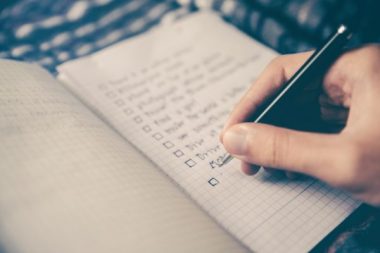
Managing your epilepsy
Learning to manage your epilepsy can help you to live better with it.
Fast facts
- Epilepsy has an impact on everyday life
- The time you have with healthcare professionals is only a few hours a year. The rest of the time it’s up to you to manage your epilepsy
- You should have an epilepsy care plan (more on this below)
- Missing a dose of epilepsy medicine can result in having a seizure
- If you have an epilepsy specialist nurse (ESN) they can provide support between appointments
Tips for managing your epilepsy
-
1Learn as much as you can about your epilepsy and seizures
-
2Manage your medicine so you remember to take every dose and never run out
-
3Look after yourself - be as active as possible, discover what helps your mental health and eat a healthy diet
-
4Keep a seizure diary (more on this coming up)
-
5Recognise the areas of your life that are affected by epilepsy
Watch
Epilepsy can have an impact in lots of ways…
Epilepsy care plans
-
What is a care plan?
A care plan is a document which helps you and the people around you manage your epilepsy.
The healthcare professionals you see about your epilepsy can help you to create a care plan. As well as all the facts about your epilepsy, a care plan can cover what you are doing to manage your epilepsy. It might also include info about your individual likes and dislikes. -
Why have a care plan?
A care plan is useful record of your past, present and future care.
It can help you to understand your epilepsy better and gives you a chance to tell people about what works best for you.
If you haven’t already got an epilepsy care plan it’s something to discuss with your epilepsy doctor or specialist nurse. -
What to include in a care plan?
There are lots of things that might be in your care plan. What’s included should be discussed and agreed between you, your family and/or carers if appropriate and your healthcare team.
These are some of the topics that might be covered:
- Your seizure type(s)
- How long you take to recover from a seizure
- Your seizure triggers
- Which epilepsy medicine(s) you take, the dose(s) and any side-effects
- Treatment options and decisions made about your treatment
- The contact details of your healthcare team
- Health goals you want to work towards
- Your safety and managing risks
- Your personal preferences
NICE guidelines recommend that everyone with epilepsy has a care plan.
Why keep a seizure diary?
Keeping a seizure diary can really help with understanding your seizures and what might trigger them. For example sleepless nights, stress or drinking alcohol. It’s also very helpful information to share with your healthcare team.

What's in my seizure diary...


"If I think there was a trigger for the seizure"
"If something was stressing me out!"
"How much sleep I’ve had"
"How long my seizure was"
"How I was feeling"
"Where I was, what I was doing and who I was with"
How my seizure diary has helped…
“
I found out that my seizures come in clusters”
“
I would never remember how many seizures I have, so it helps me to keep a track of how many I have”
“
My neurologist really likes the fact I keep a seizure diary, it helps both of us”
“
“My seizure diary helped me to work out what my triggers are”
Ideas for keeping a seizure diary...
-
What I do…
Make notes on my phone
-
What I do…
Use a seizure tracker app
-
What I do…
Use a notebook. I like lots of space to write down how much sleep I have, how I’m feeling and where I am in my menstrual cycle
-
What I do…
Use Epilepsy Action’s free seizure diaries
Get a free Epilepsy Action seizure diary
Stories by you
Read Kelsey’s story – Why I keep a seizure diary
Read Paddy’s story about adjusting to life with epilepsy and being 1 year seizure free
Watch
Who is an epilepsy expert? Watch Derrick and Torie chatting about epilepsy and who to ask when you have questions about epilepsy.
Do something
How does living with epilepsy affect you at the moment? Is there anything you could do to manage it better? You might find that ideas come to you as you explore this website.







